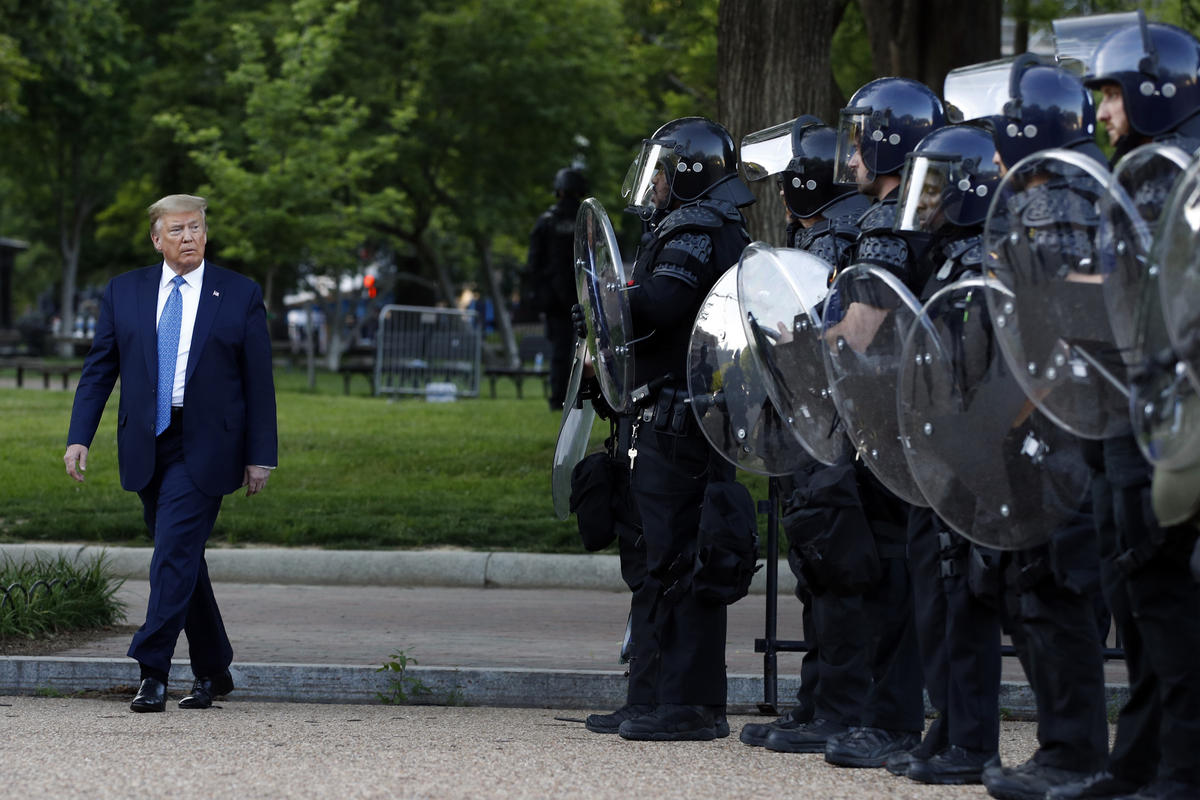By JOSH JAMES
President Donald Trump’s call for governors to “dominate” in face of widespread protests and his threats to deploy the U.S. military in U.S. cities have been both echoed and rejected by leaders in Kentucky.
On a reportedly contentious call with governors, sources say the president labeled the state leaders “weak” amid the continuing unrest and recommended the use of U.S. military to quell any violence. Rather than join the conference call Gov. Andy Beshear chose to meet with the mother of Breonna Taylor, the slain 26-year-old African-American whose death at the hands of police has further galvanized the movement for change.
“Even knowing that there was a White House call, right then my job at that moment, and generally, is to listen,” the Democrat told reporters Monday.
Beshear elaborated on his thoughts about the president’s posture on the protests Tuesday, adding that they are “not appropriate” and “not helpful.” Meeting the demonstrations with “words of force,” he said, is not productive.
Meanwhile, RollCall reports Sen. Rand Paul spokesperson Kelsey Cooper rejected suggestions by Arkansas Republican Sen. Tom Cotton that the “anarchists” be met with the 101st Airborne Division.
“As Senator Cotton should know, Posse Comitatus prohibits domestic use of our military forces. Furthermore, the 101st, which is the U.S. Army’s sole air assault division, isn’t trained to control U.S. citizens,” Cooper told the news outlet. “Senator Cotton, an Army officer, should know that and never, ever recommend that.”
But Kentucky’s most powerful senator, Mitch McConnell, sounded prepared to entertain some federal involvement at the local level if violence is not contained.
“If state and local leaders cannot or will not secure the peace and protect citizens and their property, I hope the federal government is willing to stand in the breach,” he said.
To authorize military action in U.S. cities, President Trump would need to rely on the centuries-old Insurrection Act, which governs domestic use of military troops.

